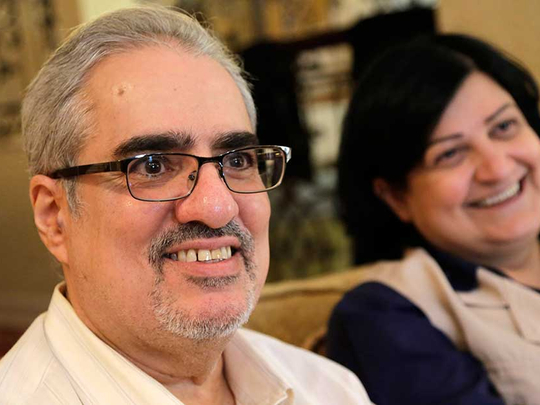
Manama: Bahraini authorities have released an opposition figure nine months ahead of the end of his prison sentence.
Ebrahim Sharif, the former secretary general of National Democratic Action Society “Wa’ad” had spent four years and three months in jail after he was arrested in March 2011 on charges of plotting to overthrow the political regime.
Sharif, who was released late on Friday, was among 21 people sentenced after dramatic events unfolded in Bahrain in February and March, deeply dividing the nation and taking the country into its worst political crisis in modern times.
His release was first announced on social media on Friday evening, but his society dismissed the breaking news as baseless rumours. However, by midnight, Wa’ad announced on its Twitter account that Ebrahim Sharif had been released.
“We consider the decision to free Ebrahim Sharif as a positive step and we pray that it is the start of a political and security breakthrough in the country,” Radhi Al Mousawi, Wa’ad secretary general, said in comments carried by local daily Al Wasat on Saturday. “We are looking forward to a new phase in Bahrain’s political life that will reinforce the domestic front in the confrontation of the big challenges internally and regionally,” he said.
The National Democratic Action Society in 2012 re-elected Sharif as its secretary general even though he was in jail and Bahrain’s laws did not allow it.
However, in October 2014 to elect a new secretary general after the Ministry of Justice filed a legal suit against the society for not adhering to the rules governing political societies.
The ministry in November dropped the case, saying that the society complied with the law.












